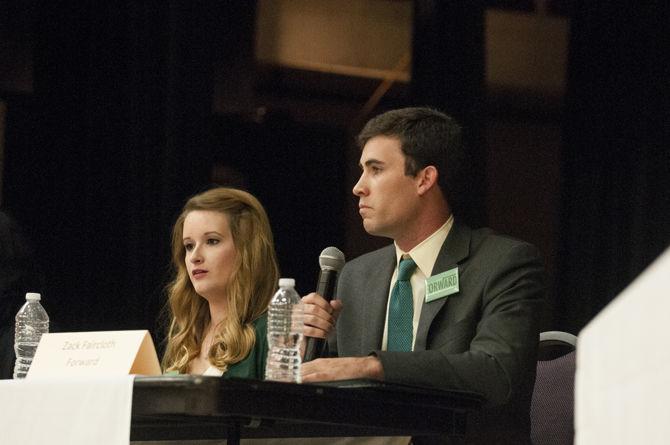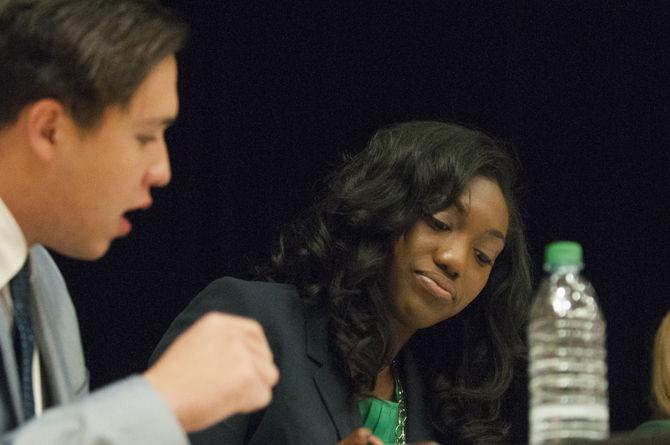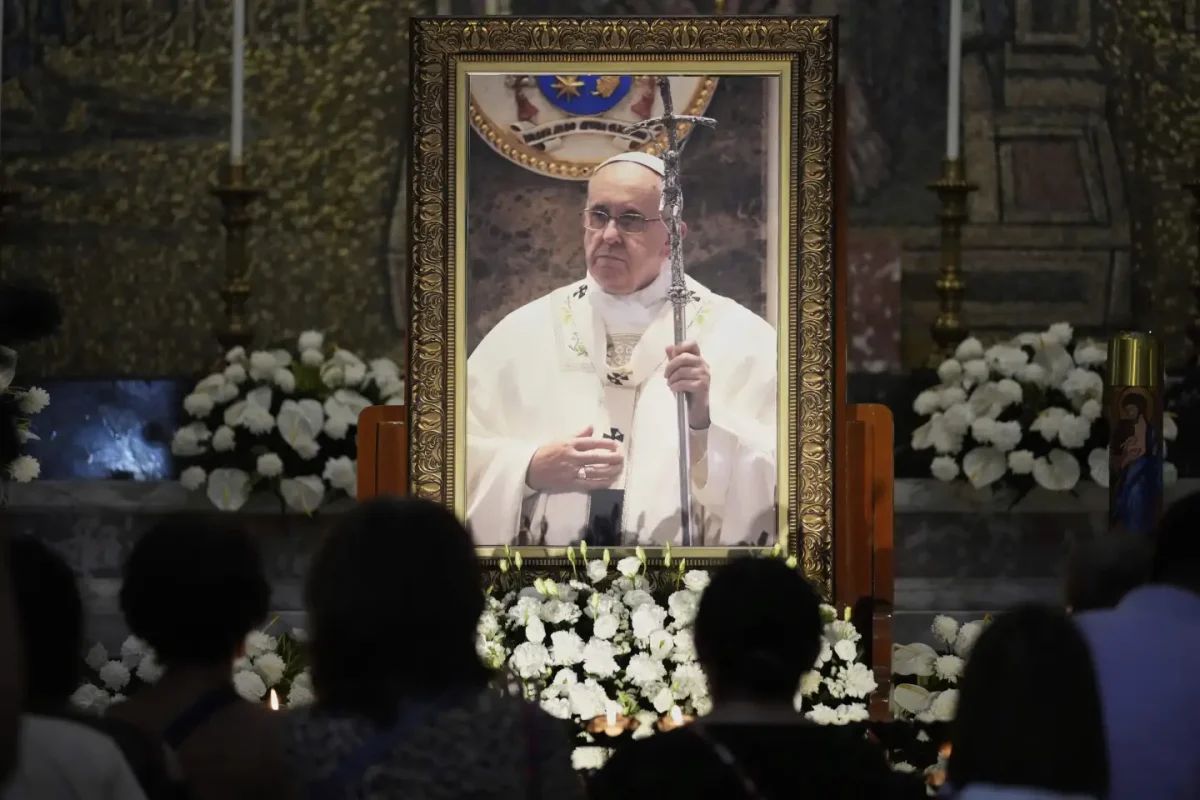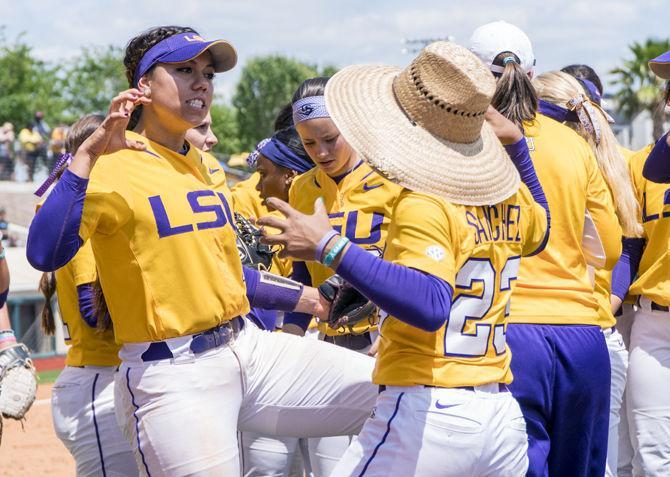The Student Government debate focused on diversity and commitment to marginalized groups, but the campaigns don’t differ much in solutions or even campaign colors.
Both tickets’ platforms wouldn’t do much to change the plight of marginalized groups on campus.
According to its website, “Forward” has an initiative called “Strive Panel,” which would be composed of student leaders, SG executive members and administrative representatives. Strive would allow “minority students from diverse backgrounds, LGBTQ students, and concerned students to be heard on a larger platform.”
The initiative says students participating on this panel would “educate the LSU community about diversity.”
Making groups model minorities isn’t the best solution to a diversity problem, and they shouldn’t have to be the University’s teachable moment.
In fact, this panel may put many multicultural student leaders in the troubling position of “speaking for their entire group,” where they may feel the pressure to represent everyone in their community. This initiative is a work in progress, but at least “Forward” acknowledges “the reality is that this something that will take several years to combat.”
On this issue, “Restart” has a really great initiative for LGBT students, and I’m not talking about the Diversity Dialogues. The Campus Pride Index is a tool for campuses to determine their student climate towards LGBT students with the aim of setting “a national standard of LGBTQ-inclusive benchmarks when it comes to policies, programs, and practices,” according to its website.
The University could participate in the Campus Pride Index, and LGBT people would experience a sea change in how they would be treated, at least on paper.
However, paper can be misleading. The Campus Pride Index isn’t going to stop many of the lived experience of discrimination marginalized people face.
“We believe that all students deserve to be represented, regardless of identity or ability,” “Restart” VP candidate Louis Gremillion said in his opening statement.
Kendra Davis of “Restart” acknowledged she would be the first female African-American LSU SG president. What may change for marginalized groups is representation, something Davis noted.
“As a minority leader on campus, I feel like I can offer something new to the table,” Davis said.
Both campaigns agreed current SG President Andrew Mahtook’s biggest failure was his organizational outreach, emphasizing greater outreach and attention to address the qualms of marginalized communities on LSU’s campus.
Faircloth plans to rectify this problem by building relationships in addition to reaching out to organizations during campaign season.
“Restart” doesn’t seem to understand how change happens when proposing its initiatives.
“Before we even started, before there was any candidate on our ticket we went to administrators with the problems we knew students were facing and said ‘here are our plans,’” Gremillion said. “If they said, ‘No way’ then we said, ‘Not on the ticket.’”
Too bad change doesn’t always happen from gaining the approval of LSU administrators. Last year, students protested LSUPD’s vague racial descriptions regarding emergency text messages, according to The Daily Reveille.
SG didn’t create the problems of marginalized groups, but it can certainly help with the solutions. While many of these initiatives are a work in progress currently, I hope they develop into meaningful change for marginalized groups on campus.
For now, Louis really hammered home what SG can guarantee marginalized students.
“I think students only expect donuts and scantrons from their Student Government.”
Michael Beyer is a 22-year-old political science major from New Orleans, Louisiana.
OPINION: SG tickets offer mostly empty promises to marginalized groups
March 4, 2016
LSU electrical engineering junior and student body presidential candidate, Zach Faircloth, and child and family studies junior and vice presidential candidate, Lindsey Landry, of the Forward 2016 campaign participate in the Student Government debate on March 3, 2016 held in the Union Ballroom.
More to Discover













